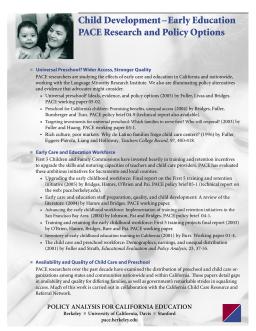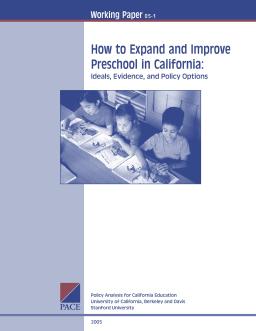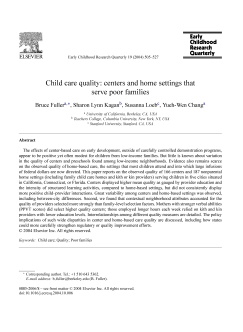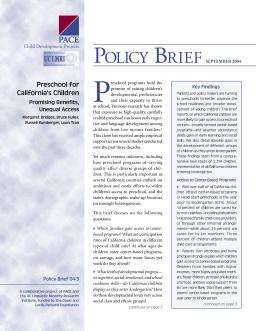Access, quality & alignment in early childhood education

More than 24 million children ages 5 and younger live in the United States, and about one in eight of them—a little over 3 million—lives in California. Given the rapid brain development during a child’s first five years of life, which lays the foundation for all future learning, California has a compelling interest and responsibility to ensure that programs for young children provide a safe, socially supportive, and effective educational environment.
Considerable research shows that children attending high-quality preschool programs receive significant benefits. California has many good providers; but for a state that once led the nation in early childhood education, early childhood education today is marked by diminished investments in quality, low wages, and highly fractured oversight and implementation.
PACE’s work related to early childhood education is designed to help policymakers understand the challenges in current state policies and develop paths forward toward a high-quality, aligned early childhood system that benefits all California children.
Pagination







Pagination